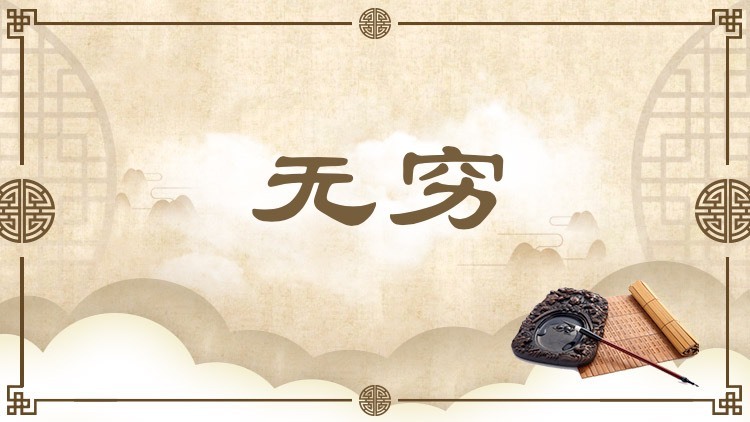Limitlessness / Infinity

无尽,无限。“无穷”一词可用在不同领域表达无尽、无限之义:其一,指空间上没有边际;其二,指时间上没有终结;其三,指事物在数量、大小等方面没有穷尽。古人在认知“无穷”的同时,也意识到时空与具体事物的“无穷”往往具有相对性。随着观察视角的变化,“无穷”可能转变为“有穷”,“有穷”也可能转变为“无穷”。
Wuqiong (无穷), literally "limitlessness," has various meanings: (1) spatial boundlessness; (2) temporal endlessness; and (3) infinity in number, size, and so forth. As they explored limitlessness, the ancients recognized the relativity of the concept in terms of time, space, and other particular things. A switch in perspective may transform limitlessness into limitedness, and vice versa.
引例 Citations:
◎今夫天,斯昭昭之多,及其无穷也,日月星辰系焉,万物覆焉。(《礼记·中庸》)
天,不过是众多小小的光明聚积而成的,至于其无穷无尽的境地,日月星辰都悬挂其中,万物都在其覆盖之下。
Heaven is but the accumulation of limitless shimmers; when viewed in its limitlessness, the sun, the moon, the stars and the constellations of the zodiac are suspended in heaven, and all the other things are overlayed by it. (The Book of Rites)
◎南方无穷而有穷,今日适越而昔来。(《庄子·天下》)
南方没有穷尽又是有穷尽的,今天去越国但昨天已经到达了。
The land of the south knows no limits yet does have limits. Today I depart for Yue, but I arrived there yesterday. (Zhuangzi)
推荐:教育部 国家语委
供稿:北京外国语大学 外语教学与研究出版社
责任编辑:钱耐安





